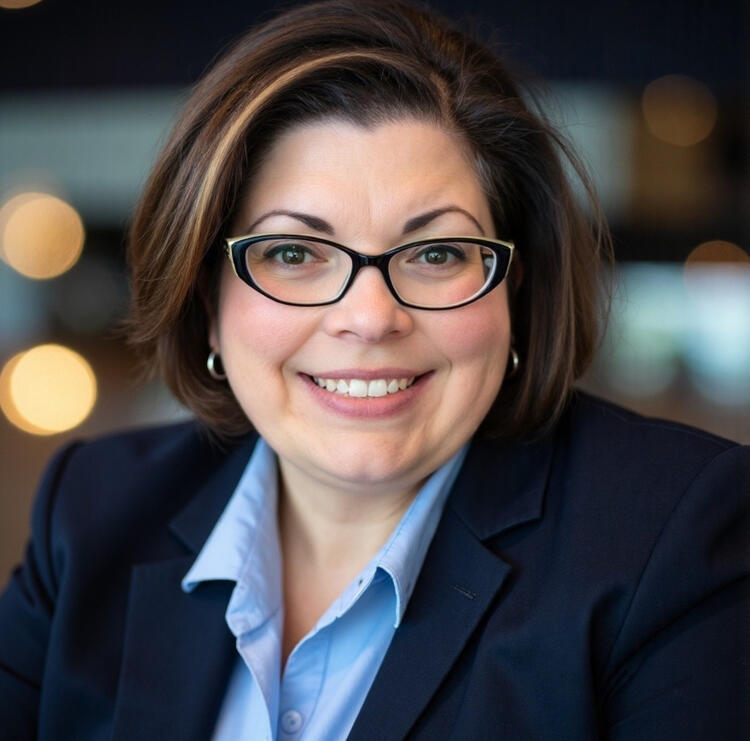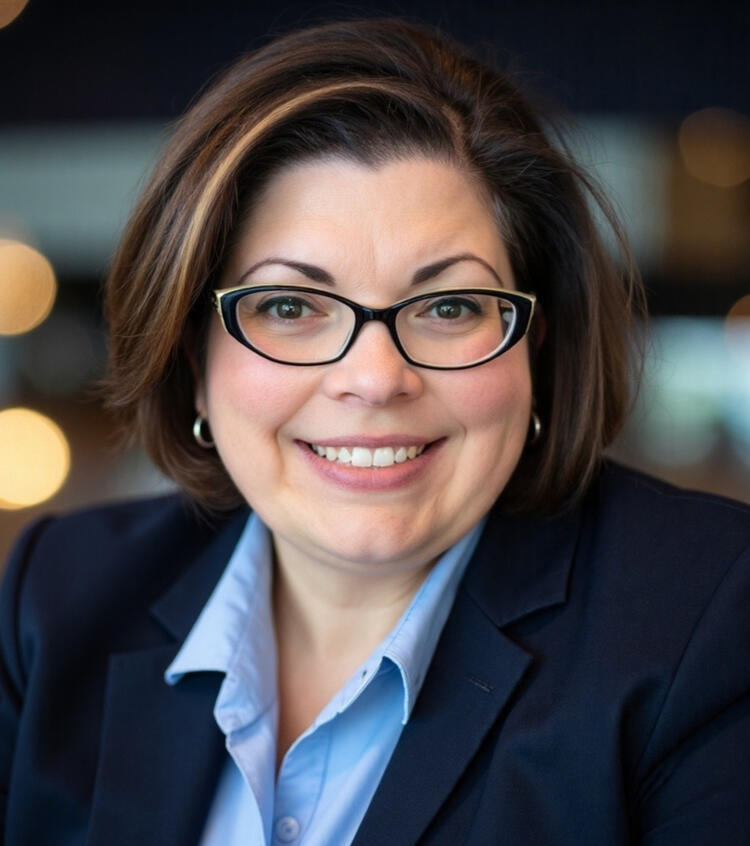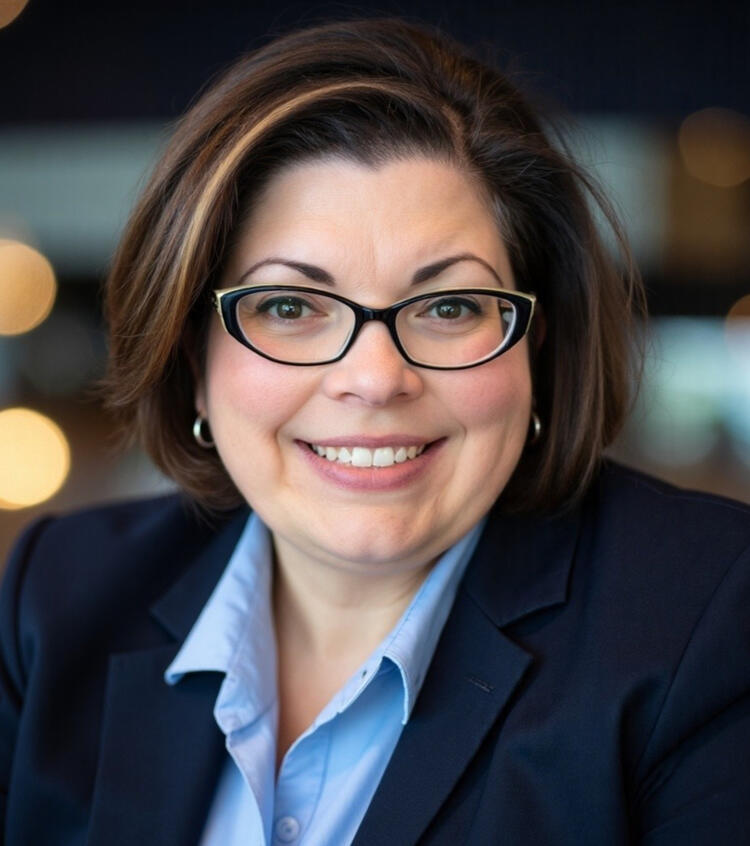
Judge Steve Rosen (retired)
ADR (Alternative Dispute Resolution) is an outstanding way to resolve disputes without having to go to court. It is often faster, cheaper, and less stressful than court proceedings. ADR can also help preserve relationships between parties, as it is more collaborative and less adversarial than litigation. Additionally, ADR can provide more creative solutions than a court ruling because the parties can work together to come up with a mutually beneficial outcome.

Comm. Jennie Laird (retired)
Accomplished. Determined. Respected.
What lawyers say:
About

Having served as a judge for more than 16 years, I have come to believe that handling disputes through arbitration or mediation is a far superior way to decide conflict when compared to the court process. These methods of alternative dispute resolution are faster, more efficient, often less costly, and typically lead to better results because the process can be tailored to any specific situation.
I attended the University of Washington, earning a Bachelor’s degree in Economics. I also took a significant number of computer programming classes during my undergraduate years. After graduation, I attended law school at the University of Minnesota. Upon receiving my Juris Doctorate, I moved back to Seattle to begin my legal career at a Seattle law firm handling the defense of civil lawsuits. I became a prosecutor in 1997 litigating everything from simple misdemeanors to serious felonies, developing a specialty in computer related issues.
I eventually left the prosecutor’s office to start my own firm which focused on criminal defense, real estate matters, and class action lawsuits. I became a part-time judge in 2007 and a full-time judge in 2010. I have had a tremendously rewarding tenure as a judge. My case-loads have included: criminal, car accident, personal injury, real estate, probate, medical malpractice, intellectual property, and products liability cases. I have also handled thousands of divorces, custody disputes, and dissolution of property and support disputes.
I am humbled to have consistently received high ratings by the lawyers of the King County Bar Association as well as a number of awards over my career including the Governor’s Award and the Washington Women Lawyer’s Vanguard Award. At the National Judicial College, I attended professional training in ADR. Additionally, I am a regular speaker at education events for attorneys.
I retired from the King County Superior Court in 2023, and I enjoy spending time with my wife and children exploring the beautiful Pacific Northwest.

I served as a family law commissioner for almost 11 years; during that time, I knew parties and lawyers would rather be anywhere else than in court. It is unimaginably difficult for people to have that which they hold as most precious – their time with their children, their access to their property and funds, their ability to move forward through family transitions – be decided by a stranger. In arbitration, parties can choose the person who makes decisions based on the evidence presented, with confidence that the decision-maker has the legal and substantive knowledge, and the experience needed, to make sound decisions. Arbitration on temporary orders and child support modifications can be scheduled more quickly, without the wait time of getting into court, and orders can be received almost immediately. In mediation, people have the power to fashion their own results, in a manner more relaxed and potentially more creative and personally honed than they could ever obtain from a court.
I attended Kalamazoo College and earned a BA in English and Political Science, then received my JD cum laude from Seattle University School of Law. I devoted my law career to family law, first in 18 years of practice and then for almost 11 years on the bench. Immediately after law school, I provided legal advice and representation to low-income families as a staff attorney with Columbia Legal Services, where in their Family Law Unit I litigated contested custody cases, typically with cross-allegations of abuse, mental health, and substance use disorder issues. I presented, statewide and nationally, training attorneys how to litigate parenting cases and address GAL and other expert reports at trial. Transitioning to private practice, at two of Seattle’s boutique family law firms I represented parties in all manner of family law cases, from dissolutions with complex property issues, to nonparent custody matters, to contested parenting plan and modification cases with multiple .191 allegations. I was a regular presenter and trainer at local and statewide CLE events on family law issues and family law litigation all through my practice career.
My activities outside of my law practice have always been family law-adjacent. I was the coordinator of the KCBA Family Law Domestic Violence Clinic for 16 years. I edited the “parenting plans” chapter of the WSBA Family Law Deskbook, and I was Chair of the Administrative Office of the Courts’ CPO Forms Committee for almost a decade. I’ve served on various task forces and workgroups addressing improvement of family law state and local rules and practice, including having been asked by Justice Mary Yu to help coordinate the statewide rule regarding family law informal trials. I am a long-time member of the KCBA family law section, having served as Secretary, Vice-Chair, and then Chair in the early 00s. I served on the Board of Directors of the QLaw Foundation, as a member and as Chair. I worked on the Andersen v. King County “Marriage Equality” case, helping identify the plaintiffs and drafting trial level declarations for plaintiffs and witnesses; I was honored to be part of the legal team awarded the Cynthia Gillespie Award by Legal Voice (then the Northwest Women’s Law Center) for that work in 2005. I served as an adjunct professor at both of our local law schools, teaching family law clinical courses, supervising students in the family law clinic, and I created and then taught for many years the first Domestic Violence Law course at the SU School of Law; in 2010, SU chose me as their Outstanding Adjunct Professor.
In 2013, I was appointed by unanimous vote of the judges to serve as a family and juvenile law commissioner with the King County Superior Court. I presided over child welfare and then family law cases, handling thousands of hearings on pre- and post-trial motions for dissolutions, parentage cases, parenting plan and child support modifications, and contempt and enforcement actions. I have been humbled and honored to have consistently been rated at the top of the bar poll ratings by the lawyers of the King County Bar Association, receiving scores at or near the top of all categories each time. I was active with the Superior Court Judges’ Association Family and Juvenile Law Committee, working on statewide family law issues, often testifying before the Washington State legislature on family law bills, and I served as the FJLC’s co-Chair for two years. I was a frequent trainer and presenter at statewide judicial conferences. In KCSC, I often provided substantive and procedural family law trainings to new judges, supporting the UFC judges by being available to them to consult as needed. I served as the Lead Commissioner for three years, and served as the “point person” to my fellow commissioners and judges on CPO and arbitration issues when those new statutes became effective over the last few years.
I retired from the King County Superior Court in 2024, and I can usually be found with my wife and our little dogs, with a book in my hand.
Contact
Call, text or email. To see our calendar and book appointments click here.
You can send mail to us at:
Rosen ADR
PO Box 15811
Seattle, WA 98115Call | Text - (206) 333-3633Use this form to send an email (but if you are looking for Judge Rosen and Commissioner Laird's availability, you can see it right here without waiting for an emailed response):
WHAT TO EXPECT
Whether you are asking me to be your arbitrator or mediator in Seattle, Bellevue, Tacoma, King County, Snohomish County, Pierce County, or other areas, I can conduct your proceeding in person or via video conferencing (such as Zoom).
After you and the other person(s) involved with your dispute have chosen a date for your arbitration or mediation, you will next sign up on the book instantly page. Within 24 hours, I will let you know if I have any conflict of interest with your dispute. Once all parties have paid their portion of my fee (and I do not have a conflict of interest), each party will receive a link and unique password to securely upload documents as well as a Zoom link for your proceeding. If you are not comfortable uploading documents, you can submit them via email or send in hard copies to the address on the contact page. All documents need to be received on the schedule set by your mediator before your proceeding to ensure that we have time to read them. You will also receive a reminder email the day before your proceeding.
If you have any questions, please don’t hesitate to contact me.
SERVICES OFFERED
Arbitration
Arbitration is similar to a trial, but the arbitrator makes all of the decisions instead of a judge. The main difference between an arbitration and a trial are that the parties can choose the arbitrator in an arbitration, but in a trial the decision maker will be a randomly selected judge. Arbitration is usually much faster and with lower legal fees. Some arbitrations can be very short (and in some family law disputes they can be finalized completely via email). Others can be much longer, lasting days or weeks. Parties are typically represented by attorneys in arbitrations.
We are fully compliant with the Uniform Family Law Arbitration Act, effective on January 1, 2024. We can record arbitration proceedings and also make a second simultaneous recording.
Rosen ADR Arbitration Rules - The following are the Rosen ADR Arbitration Rules, which are subject to the Uniform Arbitration Act, RCW 7.04A:
Modification: All parties to an arbitration may agree to modify these rules if the modification is agreed to in writing and does not violate Washington law.
Notice: Unless agreed otherwise, all documents may be served via electronic means except for original process.
Commencement of an Arbitration: An Arbitration is commenced when the parties agree to arbitrate and either party serves a Notice of Intent to Arbitrate consistent with RCW 7.04A.090 on the other party or parties and on Rosen ADR, and Rosen ADR agrees to accept the assignment. Rosen ADR will accept the Notice of Intent to Arbitrate via email.
Preliminary Hearing: As soon as reasonably practicable after Rosen ADR agrees to accept the assignment and service of the Notice of Intent to Arbitrate is served on all parties, a preliminary hearing will be scheduled. The purpose of the preliminary hearing is to discuss the needs of the case, set discovery parameters, set a discovery schedule, and set a final hearing date.
Discovery Limits: This paragraph lists the default limits for Discovery. These limits may be modified by agreement of the parties or by the arbitrator’s order. Absent such a change, the default limit will be 3 depositions per side lasting up to 6 hours per deposition. Each party will also be allowed to propound no more than 20 interrogatories and 20 requests for production. Each subpart of an interrogatory and request for production will count towards the limit.
Default Rules: The Superior Court Civil Rules (CR) and the Local Rules of the King County Superior Court (LR) shall govern all Rosen ADR arbitrations unless agreed otherwise by the parties. If the Rosen ADR Arbitration Rules are inconsistent with the CR or LR, then the Rosen ADR Arbitration Rules shall take precedence.
Discovery and Other Disputes: The parties must attempt to resolve all discovery disputes via a Civil Rule 26(i) conference before involving the arbitrator. Any discovery dispute, motion in limine, or other issue may be resolved by the arbitrator pre-hearing if requested by a party.
The Arbitration Hearing: The arbitration hearing will be conducted via video conference (Zoom) unless agreed otherwise or a different format is ordered by the arbitrator. The arbitrator will consider all evidence which the arbitrator finds to be relevant and material to the dispute. The parties must comply with Superior Court Mandatory Arbitration Rule 5.2 (related to disclosure and exchange of evidence). Unless agreed by the parties, a late disclosed witness, or item of evidence will not be considered by the arbitrator absent exceptional and unforeseen circumstances.
Award: The arbitrator will issue a written award after the conclusion of the final hearing.
Mediation
Mediation is the process of bringing the parties to a dispute together to see if the conflict can be resolved by agreement. Unlike a trial or an arbitration, a mediator will not make any decisions. Each party must choose whether to make an agreement, and they also must decide what the terms of the agreement should entail. As your mediator, I will discuss the dispute with both sides and offer opinions and experience on how to resolve the dispute. I tend to ask a lot of questions and help the parties evaluate their positions through thorough analysis. Most mediations last between 4-10 hours, but they can last multiple days on occasion. Parties are usually represented by attorneys in mediations, but they can represent themselves. The cost of mediation is generally split evenly amongst the parties.
In terms of mediation style, I am an active mediator. I will share with you my knowledge of Washington law, and I will share with you the solutions that I have seen work for many other people in your situation. When you feel locked in disagreement and stuck, I will suggest ways forward.
Divorce Mediation
Divorce mediations are appropriate for divorces or dissolutions, child custody disputes, and alimony and/or child support issues. The cost of divorce mediation is generally split evenly between the parties.
In divorce and parenting mediation, I act as an impartial facilitator who assists you and your spouse or your children’s other parent in conferring and agreeing on a variety of subjects. Our shared objective is to create a settlement that both of you can agree upon. While decisions regarding housing, the residential plan (in Washington this is called a Parenting Plan), child support, possessions, and finances might be difficult to discuss, I have experience with thousands of family law cases and can help you address these issues point by point in ways that enable you to reach an agreement. I can also make suggestions that I have seen work for others in similar situations. I have up to date child support calculation software that can be invaluable for resolving child support disputes. And, with the modern acceptance of Zoom, I can mediate divorces for all Washington courts. I am also available to mediate in person when requested.
I generally am an active participant in our discussions to help you understand the significant financial issues in divorce, parenting plans, and child support calculations. I have conducted hundreds of trials and motions involving child support issues, the division of homes, Restricted Stock Units, vehicles, pensions, 401(k)s, and other financial issues. This familiarity with numbers and the financial aspects of divorce allows me to offer valuable assistance and guidance throughout the divorce mediation process.
As a retired judge and trained mediator, I can lead your discussions, but you remain the final decision maker. When you reach an agreement, I can assist you and your attorney in preparing a legally binding agreement (called a Civil Rule 2A agreement) showing your decisions so that a Washington State lawyer can draft the appropriate legal paperwork allowing a court to finalize the divorce decree and other appropriate legal pleadings.
Temporary Orders
Retired Commissioner Laird is now able to arbitrate your family law Temporary Orders. She conducts two hearings per day, and will get final orders emailed out to you within 48 hours or less. The King County Local Rules will apply to your hearing, but with 10 minutes of argument per side. If you arbitrate your Temporary Orders with Comm. Laird, you will know exactly who your decision maker will be, and you will not face long waiting times and other delays. If you would like to schedule your case for Temporary Orders with Comm. Laird, just click here.
Consulting
We are available to help you plan your motion, trial, arbitration, and mediation strategy. We can also run mock arguments for motions. In helping you prepare, we use our significant experience on the bench to help you understand what works, what doesn't, and likely outcomes.
BOOK INSTANTLY
First, click the See Our Calendar button at the bottom of this page to see our calendars. Pricing for mediation, including 2 hours of preparation time, is as follows:
| Hours | # of Parties | Laird ($450/hr) | Rosen ($500/hr) |
|---|---|---|---|
| 4 | 2 | $2700 | $3000 |
| 4 | 3 | $3200 | $3500 |
| 4 | 4 | $3700 | $4000 |
| 4 | 5 | $4200 | $4500 |
| -- | -- | -- | |
| 8 | 2 | $4500 | $5000 |
| 8 | 3 | $5000 | $5500 |
| 8 | 4 | $5500 | $6000 |
| 8 | 5 | $6000 | $6500 |
Mediation overage hours are billed at $450 per hour for Comm. Laird (ret.) and $500 per hour for Judge Rosen (ret.). Arbitrations that arise from a mediated case are billed at $450 per hour. Full case arbitrations are billed at $600 per hour for Judge Rosen and at $450 per hour for Comm. Laird.Next, work with your opposing party to find a date and time that works for everyone (and feel free to send a link to this webpage so everyone can see my availability).Finally, once you have agreed on a date and time, simply come back to this page and select an appointment time to begin the booking process.If the date you need is not available, if you are asking for an evening or weekend appointment, or if you need multiple days in a row, please contact me. Depending on my availability, I may be able to schedule rush mediations to comply with court deadlines.You can also call, text, or email if you would like to book your appointment manually or need help.
Arbitration Contact Form
This form is for requests to reserve arbitration dates. Please use our the See Our Calendar button below this paragraph to see when we are available and agree on a date for your arbitration (but do not reserve it on with the See Our Calendar button). Once all parties have agreed on an available date, please fill out this form.
You can also call or text if you would like to book your appointment manually or need help.
Rosen ADR
Terms & Conditions
If your appointment is cancelled within 10 days of your scheduled date by any litigating party, or if any party does not use the entire appointment on your scheduled date, you will not receive a refund. If your appointment is cancelled more than 10 days before your scheduled date, you will receive a refund less 4% if your payment was by credit card, or less $20 if your payment was by ACH transfer or check.All mediations will be conducted via Zoom unless both parties and Rosen ADR agree otherwise. Arbitrations will be conducted via Zoom unless the parties agree or the arbitrator orders otherwise. If a facility rental fee is necessary for an in person proceeding, the parties will pay the fee to Rosen ADR.If your mediation or arbitration requires work in addition to the allocated hours, you will be billed at the applicable hourly rate for that extra time. The credit or bank account ACH used to pay the invoice may be automatically billed for any overage charges.If a party is represented by a law firm, then that law firm agrees to be responsible for the fees and costs resulting from the mediation or arbitration.Rosen ADR does not give any legal advice. By engaging Rosen ADR, you agree to these terms, including that Rosen ADR will not provide you or your clients any legal advice.
Your submission has been received.
We will let you know if we can accept your appointment within 24 hours, usually much faster!
Thank you for signing your document. If you are currently in a mediation, please don't leave your mediation until your mediator has told you everyone has signed everything. Thank you!!!

I served as a family law commissioner for almost 11 years; during that time, I knew parties and lawyers would rather be anywhere else than in court. It is unimaginably difficult for people to have that which they hold as most precious – their time with their children, their access to their property and funds, their ability to move forward through family transitions – be decided by a stranger. In arbitration, parties can choose the person who makes decisions based on the evidence presented, with confidence that the decision-maker has the legal and substantive knowledge, and the experience needed, to make sound decisions. Arbitration on temporary orders and child support modifications can be scheduled more quickly, without the wait time of getting into court, and orders can be received almost immediately. In mediation, people have the power to fashion their own results, in a manner more relaxed and potentially more creative and personally honed than they could ever obtain from a court.
I attended Kalamazoo College and earned a BA in English and Political Science, then received my JD cum laude from Seattle University School of Law. I devoted my law career to family law, first in 18 years of practice and then for almost 11 years on the bench. Immediately after law school, I provided legal advice and representation to low-income families as a staff attorney with Columbia Legal Services, where in their Family Law Unit I litigated contested custody cases, typically with cross-allegations of abuse, mental health, and substance use disorder issues. I presented, statewide and nationally, training attorneys how to litigate parenting cases and address GAL and other expert reports at trial. Transitioning to private practice, at two of Seattle’s boutique family law firms I represented parties in all manner of family law cases, from dissolutions with complex property issues, to nonparent custody matters, to contested parenting plan and modification cases with multiple .191 allegations. I was a regular presenter and trainer at local and statewide CLE events on family law issues and family law litigation all through my practice career.
My activities outside of my law practice have always been family law-adjacent. I was the coordinator of the KCBA Family Law Domestic Violence Clinic for 16 years. I edited the “parenting plans” chapter of the WSBA Family Law Deskbook, and I was Chair of the Administrative Office of the Courts’ CPO Forms Committee for almost a decade. I’ve served on various task forces and workgroups addressing improvement of family law state and local rules and practice, including having been asked by Justice Mary Yu to help coordinate the statewide rule regarding family law informal trials. I am a long-time member of the KCBA family law section, having served as Secretary, Vice-Chair, and then Chair in the early 00s. I served on the Board of Directors of the QLaw Foundation, as a member and as Chair. I worked on the Andersen v. King County “Marriage Equality” case, helping identify the plaintiffs and drafting trial level declarations for plaintiffs and witnesses; I was honored to be part of the legal team awarded the Cynthia Gillespie Award by Legal Voice (then the Northwest Women’s Law Center) for that work in 2005. I served as an adjunct professor at both of our local law schools, teaching family law clinical courses, supervising students in the family law clinic, and I created and then taught for many years the first Domestic Violence Law course at the SU School of Law; in 2010, SU chose me as their Outstanding Adjunct Professor.
In 2013, I was appointed by unanimous vote of the judges to serve as a family and juvenile law commissioner with the King County Superior Court. I presided over child welfare and then family law cases, handling thousands of hearings on pre- and post-trial motions for dissolutions, parentage cases, parenting plan and child support modifications, and contempt and enforcement actions. I have been humbled and honored to have consistently been rated at the top of the bar poll ratings by the lawyers of the King County Bar Association, receiving scores at or near the top of all categories each time. I was active with the Superior Court Judges’ Association Family and Juvenile Law Committee, working on statewide family law issues, often testifying before the Washington State legislature on family law bills, and I served as the FJLC’s co-Chair for two years. I was a frequent trainer and presenter at statewide judicial conferences. In KCSC, I often provided substantive and procedural family law trainings to new judges, supporting the UFC judges by being available to them to consult as needed. I served as the Lead Commissioner for three years, and served as the “point person” to my fellow commissioners and judges on CPO and arbitration issues when those new statutes became effective over the last few years.
I retired from the King County Superior Court in 2024, and I can usually be found with my wife and our little dogs, with a book in my hand.
If you would like to see my schedule and book your appointment instantly, please click here.
DOWNLOADS
- Please consider downloading our asset and debt spreadsheet here (which builds on others' work) for use in your mediation. Feel free to add as many rows as you need for your case. Make sure to enable macros so it works properly.
- Our RSU/In re Short calculator is here.
- Our Present Value of Maintenance calculator is here.
- If you have any problems or have suggestions, please just contact us. We can email you a copy of the asset and debt spreadsheet if you have any issues downloading. We hope you like our calculators!
Present Value of Future Maintenance Payments Calculator
For your protection, none of your data ever leaves your computer. RosenADR is unable to see your data or save a copy.
The accuracy of this calculator has not been verified. Consult an attorney or expert.
